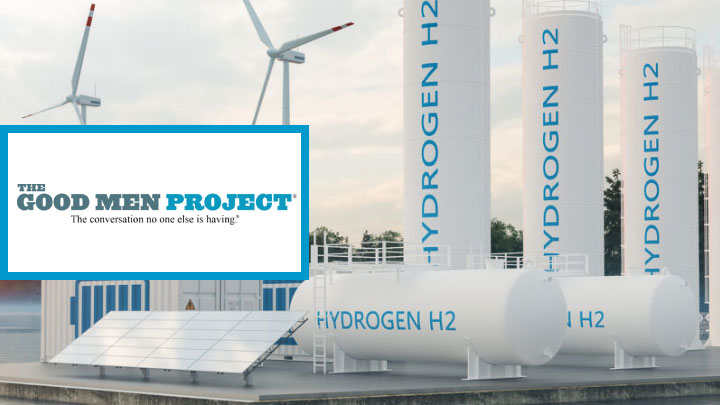The Importance of Hydrogen in a Sustainable Energy Economy
Read Time: 3 minutes
This is a repost from The Good Men Project.
The current energy economy structure is unsustainable. For one thing, energy demand is rapidly increasing, while fossil fuels are depleting much faster, and we may eventually run out of fossil fuels. Besides that, since raw material supplies such as oil, coal, and natural gas are limited, suppliers take advantage and try to influence energy prices. As a result, the high energy prices cause panic and economic stress in the global economy. Moreover, it also becomes a cause of political instability in energy-producing areas where armed conflicts or attempts to seize control of prized assets manifest.
In addition, emissions from fossil fuel use degrade air quality all over the world, particularly in the Northeastern United States. As per studies, carbon byproducts are significantly altering the global climate. Thus, the rising health and climate pollution costs are driving the need for a shift to clean fuel. To address the challenge of global warming while also providing a safe and dependable clean fuel, hydrogen fuel companies are developing infrastructure to make hydrogen a green and sustainable solution to our energy needs.
If you want to discover more about green hydrogen companies and their innovative ideas for the hydrogen economy, visit Genh2hydrogen.com. GenH2 is a world-class hydrogen infrastructure company with decades of expertise researching, designing, and manufacturing technological solutions for the hydrogen economy. The company focuses on the commercialization of clean hydrogen production, storage, transport, and dispensing, leveraging years of collaboration with leading hydrogen experts. In addition, GenH2 promotes a global move to carbon-free energy by focusing on the mass manufacture of infrastructure solutions.
If you’re wondering how hydrogen can mitigate economic and environmental issues while fueling future growth. Keep reading.
Hydrogen Helps Reduce Pollution
Hydrogen is a powerful energy source. Hydrogen fuel cells or liquid hydrogen generated by hydrogen-producing companies have been technically proven to be capable of powering private and commercial automobiles. The benefit of employing hydrogen as an energy source is that it only produces water and heat when combined with oxygen. The usage of hydrogen fuel produces no greenhouse gases or other pollutants.
Hydrogen Can Be Produced From Multiple Sources
There are several methods for producing hydrogen as a fuel. According to the current technology and infrastructure available, hydrogen can be manufactured centrally and subsequently delivered locally where it will be utilized. Moreover, hydrogen gas may be formed from gasoline, methane, biomass, coal, or water. The entire process of manufacturing and using hydrogen is still in its early stages, and further breakthroughs are needed to make it widely available and used. However, using hydrogen reduces the global economy’s dependence on regions that produce fossil fuels. This will assist in minimizing energy bills in the long run.
Hydrogen As a Renewable Source of Energy
We can separate water into hydrogen and oxygen using electrolyzers. On the other hand, electrolyzers consume electricity, which may be derived from well-known renewable energy sources such as solar, wind, hydro, and tidal. Using renewable energy to produce hydrogen creates a sustainable, nonpolluting infrastructure independent of petroleum products. The ultimate outcome is pure hydrogen fuel, which hydrogen fuel companies can store and supply.
With increasing hydrogen consumption and technological advancements, hydrogen production and distribution costs will become more reasonable. Moreover, if partnerships between government, industry, universities, and non-profit organizations are reinforced, hydrogen may emerge as a cornerstone of the sustainable energy economy.

